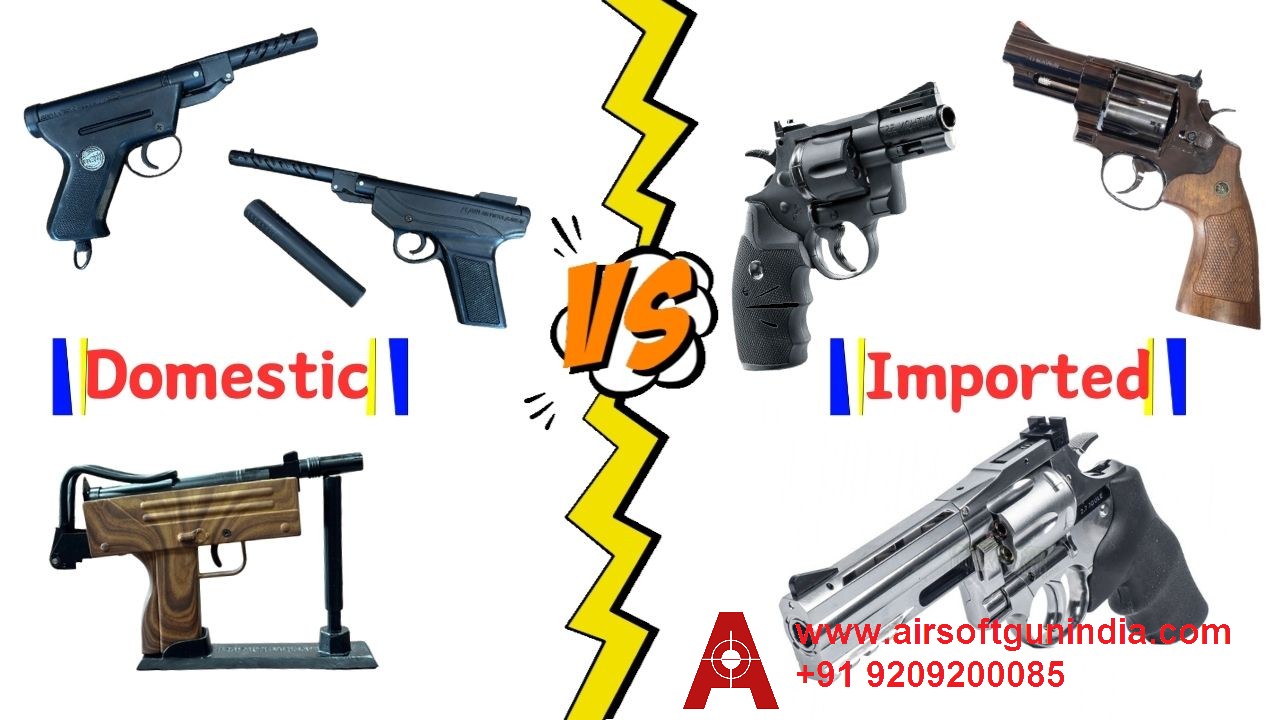Title: "Imported Air Guns vs. Domestic Models: Pros and Cons"
When it comes to choosing an air gun, enthusiasts are often faced with the decision between imported models and domestic alternatives. Each option offers its own set of advantages and disadvantages, catering to different preferences and priorities. In this article, we'll explore the pros and cons of imported air guns versus domestic models to help you make an informed decision.
Imported Air Guns
Pros:
1. Quality and Performance: Imported air guns are often renowned for their superior quality and performance. They are manufactured by established brands with a reputation for excellence in design and engineering, ensuring reliable operation and precision shooting.
2. Wide Range of Options: Imported air guns offer a diverse range of options, including pistols, rifles, and specialty models tailored to specific shooting disciplines. Enthusiasts have access to cutting-edge technology, innovative features, and iconic designs from renowned manufacturers around the world.
3. Global Recognition: Imported air guns enjoy global recognition and are widely used in international competitions and sporting events. Owning an imported model can provide a sense of prestige and authenticity, particularly among serious shooters and collectors.
4. Resale Value: Due to their reputation for quality and performance, imported air guns typically retain their resale value better than domestic models. They are in high demand among enthusiasts seeking top-tier equipment for their shooting endeavors.
Cons:
1. Higher Cost: One of the primary drawbacks of imported air guns is their higher cost compared to domestic models. The premium quality and craftsmanship often come with a corresponding price tag, making imported options less accessible to budget-conscious buyers.
2. Limited Availability: Depending on your location, imported air guns may have limited availability, with fewer retailers stocking these products compared to domestic brands. This can make it challenging to find specific models or accessories, requiring enthusiasts to rely on specialized stores or online suppliers.
3. Regulatory Compliance: Importing air guns may entail additional regulatory compliance requirements, including customs duties, import taxes, and documentation. Buyers should be aware of any legal obligations or restrictions associated with importing firearms into their country or region.
Domestic Models:
Pros:
1. Affordability: Domestic air guns are often more affordable than their imported counterparts, making them an attractive option for budget-conscious buyers or beginners entering the sport. They offer a cost-effective way to enjoy shooting sports without breaking the bank.
2. Local Support and Service: Purchasing a domestic air gun provides access to local support and service networks, including authorized dealers, repair centers, and customer service representatives. This can be advantageous for troubleshooting issues, obtaining spare parts, or seeking technical assistance.
3. Customization and Modification: Domestic air guns may offer greater flexibility for customization and modification, allowing enthusiasts to personalize their equipment according to their preferences and shooting style. Aftermarket accessories and upgrades are often readily available for popular domestic models.
Cons:
1. Variable Quality: While some domestic air guns may offer excellent quality and performance, others may fall short in terms of craftsmanship and consistency. Buyers should research and assess reviews to ensure they select a reputable brand known for producing reliable products.
2. Limited Options: Domestic air gun manufacturers may have a more limited range of options compared to their international counterparts. Enthusiasts seeking specialized features or niche models may find their choices constrained when opting for domestic models.
3. Perception and Prestige: Despite their potential for quality and performance, domestic air guns may not carry the same level of prestige or recognition as imported brands. Some enthusiasts may prioritize owning a well-known international brand for its perceived status and authenticity.
In conclusion, the choice between imported air guns and domestic models ultimately depends on individual preferences, budgetary considerations, and shooting requirements. While imported options offer premium quality and global recognition, domestic alternatives provide affordability, local support, and customization opportunities. By weighing the pros and cons of each option, enthusiasts can select the air gun that best aligns with their needs and aspirations in the world of shooting sports.
